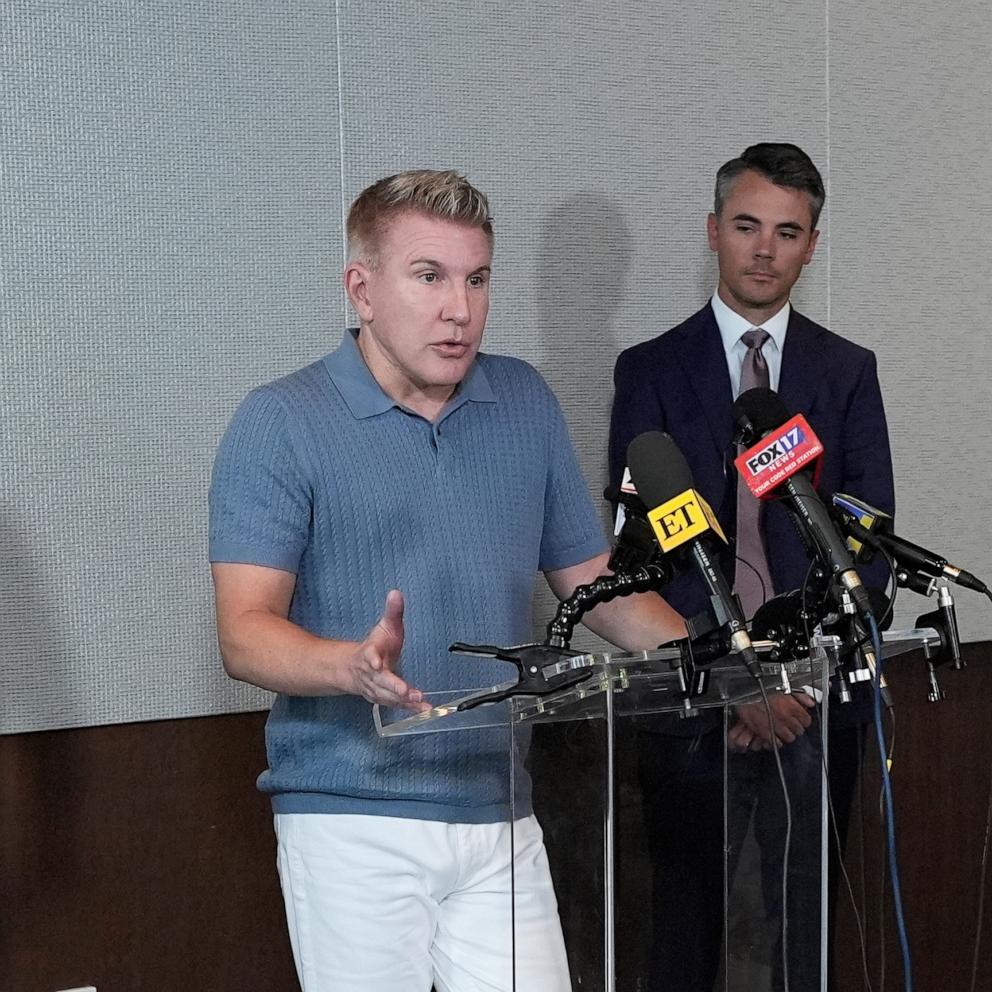Abrego Garcia's attorneys ask judge for sanctions against Trump administration
Attorneys for mistakenly deported Kilmar Abrego Garcia on Wednesday asked a federal judge to impose sanctions on the Trump administration for "repeated violations of its discovery obligations."
The Salvadoran native was brought back to the U.S. on Friday to face criminal charges in Tennessee, following a series of court battles in which the Trump administration repeatedly said it was unable to bring him back.
U.S. District Judge Paula Xinis, in a separate case in Maryland, ordered government officials in April to testify under oath through expedited discovery in order to resolve Abrego Garcia's wrongful deportation. HIs attorneys, in a court filing Sunday, argued that, despite his return, the Maryland court case is not over because the court continues to have a role "to ensure that [Abrego Garcia's] case is handled as it would have been had he not been improperly sent to El Salvador."
The DOJ, in response, argued that in a filing on Tuesday that Abrego Garcia's return makes the Maryland case unnecessary, and that it intends to file a motion to dismiss that case by next week.
In their court filing Wednesday night, Abrego Garcia's attorneys criticized the government's actions.
"The Government's defiance has not been subtle. It has been vocal and sustained and flagrant," argued Abrego Garcia's attorneys, who said the government's "defiance" of the court's discovery orders "has been egregious."
The attorneys requested that Judge Xinis impose fines "based on a finding of civil contempt," and that she compel the production of information the government "has improperly withheld," as well as "investigate the extent of the government's willful noncompliance."

In the 33-page filing, Abrego Garcia's attorneys pointed to public statements made by Trump officials, documents submitted in discovery, and statements made by government attorneys in court to argue why they believe the government violated the court's orders.
"Nearly sixty days, ten orders, three depositions, three discovery disputes, three motions for stay, two hearings, a week-long stay, and a failed appeal later, the Plaintiffs still have seen no evidence to suggest that the Defendants took any steps, much less 'all available steps,' to facilitate Abrego Garcia's return to the United States," they wrote.
The record, Abrego Garcia's attorneys argued, reflects "a pattern of deliberate delay and bad faith refusal with court orders."
Abrego Garcia, a Salvadoran native who had been living with his wife and children in Maryland, was deported in March to El Salvador's CECOT mega-prison -- despite a 2019 court order barring his deportation to that country due to fear of persecution -- after the Trump administration claimed he was a member of the criminal gang MS-13, which his family and attorneys deny.
Despite acknowledging that Abrego Garcia had been deported to El Salvador in error, the Trump administration repeatedly argued that it was unable to being him back and could not disclose anything about his wrongful removal because it would compromise national security.
In Wednesday's filing, Abrego Garcia's attorneys said that Judge Xinis could order the documents over which the Trump administration has asserted state secrets privilege to be produced for in-camera review and suggested the court could also order a review of the personal devices of "key officials" including Attorney General Pam Bondi.
Abrego Garcia was ultimately brought back to the U.S. last week to face a two-count indictment that alleges he participated in a yearslong conspiracy to haul undocumented migrants from Texas to the interior of the country, involving the domestic transport of thousands of noncitizens from Mexico and Central America, including some children, in exchange for thousands of dollars.
He is set to appear in court in Tennessee on Friday for his arraignment in the case.




